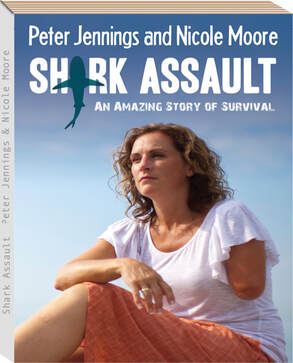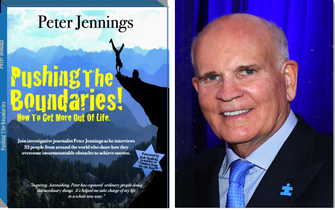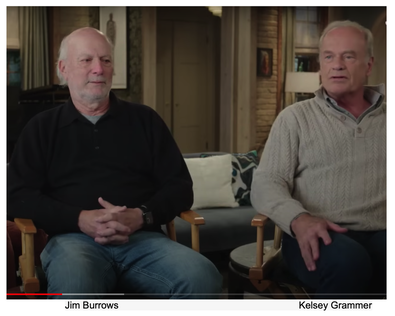 I am saddened to read today that shark deaths due to fishing have increased in recent years despite an international effort to reduce the harvesting of their fins. So says a new study that describes how shark finning – amputating a shark's fins and tail before throwing the carcass back into the water – is an awful practice. In the majority of cases, those are live animals being cast back into the sea after having their fins hacked off. Their future: a slow, dreadful death where the shark is left to bleed to death. Oh, and about one-third of those sharks killed belong to species facing extinction. I learned a lot about sharks when researching and writing my book “Shark Assault: An Amazing Story of Survival” It’s the true story of a courageous young woman, Nicole Moore from Orangeville ON, who was walking waist-deep in the ocean at a Mexican resort when she was brutally, savagely attacked twice by a bull shark. She came very close to dying, lost her arm to amputation and has since endured numerous surgeries to save her leg. Along the way, I met Claudia Li, founder of Shark Truth. She’s proudly Chinese, but she says the shark-finning process is inhumane. "Sharks are picked up and found, and they slice the fin off and they dump the rest of shark back into the ocean, and the shark's left to bleed to death," she explained. I also interviewed marine ecologist Dr. Peter Sale who told me that sharks are the “policemen” of the sea, keeping order. “If we start losing sharks, we’ll start losing the seas!” For the last word, I turn to Dalhousie University biology professor, Dr. Boris Worm. "The number of threatened shark species around the world keeps going up, not down. Very simply, we need to do more.”
0 Comments
 A friend has pointed out that there are people on Facebook who want to be my friend. And I gather they’re wondering why I don’t accept their request. Well, please don’t take it personally. Fact is, I don’t do Facebook. I’m not on the site. So, if you’re waiting for me to accept your friend request, you’re gonna have a long wait. Now, don’t think this means I’m deliberately avoiding those of you who live by the Facebook rules. Not at all. It’s just, I’m not into social media. I’m not on Facebook. I’m not writing tweets on Twitter. I’m not scouring Instagram seeking the newest photos. You know, it was back in the day when Facebook was taking the world by storm… everyone seemed to be joining up. Yet I didn’t feel that call. So, I got together with my crack IT crew – namely, my sons Charlie and Jamie – and asked them, “Hey guys, should I be on Facebook?” “It depends,” was the answer. “Dad, you take lots of photos, for instance, of your vacation destinations. Don’t you want to publish those for people to see?” “Nope,” was my response. “Oh sure, I may want to share some pix with a few people, like your grandmother, but I’m not looking to share my life with millions of others I don’t even know.” “OK then, how about this: you’re pretty outspoken when it comes to politics. Sharing your views with people on Facebook can expose your thoughts to a much wider audience, creating a wider dialogue.” “No interest,” I said. “If I have ideas, I’m happy to email you guys or a handful of other folks. But sharing my views with people I don’t even know? No thanks.” “All right then. A third question: Facebook can help you find job candidates. You’re running a busy marketing agency. Wouldn’t it be nice to have candidates lined up for your next job posting?” “Well... No. We don’t post job opportunities. In fact, normally we take recommendations from a small group of people in our business. No need to go wider than that.” “Then dad,” they exclaimed, “you don’t need Facebook!” And, from the old habits die hard department, it’s been that way ever since. Oh, I should point out that Charlie, my oldest son, set up a program where I’m supposed to promote this blog by posting a reminder on Instagram when I submit a new entry. I think it automatically goes over to Twitter and Facebook the way he set it up. When I remember to do that, it’s is my social media exposure. So, if anyone is cursing the fact I’m not answering their friend request, please don’t take it personally. Now you know.  His name is Peter and he’s a pastor with a past. As the minister of a small rural church, Peter’s a guy who vaulted from technology to theology, exchanging his business credo for a new kind of creed, Now, I’d always assumed that men of the cloth get their calling from a standing start. But Peter burst that bubble. As a career jumper whose migration from business to Bible surprised even him, his metamorphosis occurred at a time when most of us are starting the countdown towards leaving the rat race. Let me tell you his story. I was at a wonderful country wedding beside a pristine lake with the mighty oaks and maples bearing witness to matrimony. The vows amongst the boughs complete, I managed to grab the groom's ear: “Really liked your service,” I mentioned. “Oh, that’s all Peter’s work,” he said, pointing. I glanced at the man in black as he gazed at a purple sky foretelling drizzle. “Something intrigues me about the pastor,” I said. “Gonna check him out.” Peter extended his hand and uttered almost immediately, “You know, I have to confess I’ve only done a few weddings, so your feedback would be helpful... how’d you like the service?”. I was a little taken aback, but his smiling curiosity was genuine and the man meant business. I set to work politely praising the uniqueness of the ceremony and he seemed particularly pleased, reminding me that even those appearing to be above feedback always benefit from a compliment. Intrigued, I decided to delve deeper and our conversation became more revealing. The son of a contractor who’d faced bankruptcy, Peter learned early about the trials of commerce. He introduced himself to the world of business by selling solar energy panels (early connection to the heavens?). But he was ahead of his time and when prospects shut down quicker than the sun darts behind a cloud, he decided it was time to come in from the cold and seek security at Bell Canada. Problem was, Peter couldn’t ignore the nagging feeling that something was missing in his life. He also found it punishing to work for a distracted boss who was rarely available for guidance. Now, our man is nothing if not extraordinary so it didn’t take much to realize another adventure was more suited to his destiny, even with a wife and two small kids to support. In a move that defines courage, he left Bell and applied himself full time to theology. To me, that’s a leap of faith... working without a net. To him, a natural step to deep beliefs and firm convictions. Next came the long hours, unrelenting focus and years of studying. And while there were times when even Peter questioned his choice or where the next meal loomed, this career switch-hitter had the satisfaction of passing into the ministry with flying colours. Flash forward to today where Peter’s reward is securely in place, overseeing a friendly church with a thankful community, not a communications monopoly with an ungrateful mandate. He’s a happy man, at peace with himself and proud to have engineered a release from that one-way street to the status quo. Oh, one other development: Peter tells me he’s very pleased with his new boss and can call upon Him at will.  I’ve just returned from a glorious pre-winter vacation in Saint Lucia, our favorite Caribbean destination. Staying at a beautiful beach at Rodney Bay, we noticed that there are areas that have reefs with beautiful fish living there, some of which are very few in number and are potentially suffering extinction. One thing that surprised us was seeing people fishing on the beach. We understand that fishing is “legal” but surely they could find somewhere else to fish rather than where people are swimming (creating dangerous situations with live hooks). Or perhaps they could understand that many fish species are being depleted and are suffering extinction: does Saint Lucia really want to be an island without marine life? It's our hope that the government might favor visitors who love to swim in the sea, while protecting the reef fish. We hope they will post notices advising people who feel they must fish to consider fishing where people are not swimming.  I’ve been receiving enquiries about the Jazz Cruise I posted about recently, so here are some more details. 25 years ago, trumpeter Guido Basso took up the baton by hiring several musicians to join him on a cruise ship where they would present special jazz concerts to a group of fans. Having been on a few of these voyages, let me tell you how cool it is to be “special”, partaking in unique jazz events that most people aboard the ship are not authorized to attend. Sadly, Guido passed away earlier this year. But Mike Murley, wonderful tenor sax player, and Heather Bambrick, extraordinary vocalist, are sustaining Guido’s memory by keeping the Jazz Cruise going. This year’s trip – the first without Guido – featured Kevin Turcotte on trumpet and flugelhorn and he did a great job of picking up where Mr. Basso left off. Kevin, Mike and Heather were joined by Ted Quinlan on guitar, Pat Collins on bass and Barry Elmes playing drums. As aways, Ted O’Reilly hosted. This band could not have been better! They played outstanding tunes in five concerts and left the attendees wanting more. If you enjoy really good jazz (featuring lots of “standards”), let me suggest you join us next year. It will be in the autumn and our Travel Advisor, Rose Coleman with Direct Travel, is the lady who pulls it all together. You can reach Rose for details at (905) 510-8460 or [email protected]. Tell her PJ sent you. I do hope you can join us: it’s a musical and travel adventure you will not soon forget.  A couple of weeks ago marked the 25 year anniversary of the annual Canadian Jazz Cruise. I’ll leave it to Heather Bambrick – singer extraordinaire – to offer some thoughts… “It was beyond wonderful. This was our first cruise since we lost our dear Guido Basso, who basically helped create and build this annual event and his presence was definitely missed. However, I think we did him proud with a wonderful group of outstanding musicians as well as a simply terrific group of cruisers. We saw some of the familiar lovely faces, as well as more than a few new ones who've decided to join our little jazz cruise family. All in all, it was an outstanding 10 days of sailing to incredibly gorgeous Caribbean ports, as well as sharing some brilliant music and fun with a wonderful group of people. We're already starting to plan next year's cruise.”  I’ve just returned from a wonderful jazz cruise with stops at 5 Caribbean islands as well as a tour by water of Fort Lauderdale, Florida. I was unaware that Fort Lauderdale is known as the "Venice of America" due to the miles of canals and historic riverfront. As we passed by luxurious households bordering the water, I was reminded of being inside one of these lovely mansions, owned by Bob Wright, retired Chairman and CEO of NBC TV, the oldest major broadcast network in the US, where he’s been credited with overseeing the company’s expansion into a media conglomerate and leading growth to record earnings. Bob’s resumé also features several executive positions with the network’s then parent, General Electric, culminating as GE’s vice chairman, a role he retired from in 2008. My friend George Cohon had set me up to meet with Bob at his splendid West Palm Beach, Florida home, this for a chapter in my book “Pushing The Boundaries: How To Get More Out Of Life”. I learned a lot talking to this brilliant businessman, including how dealing with risk and taking steps outside the box are great ways to get ahead. I also picked up pointers on the value of resilience in your life that helps achieve objectives. One of the highlights of Bob’s career is the merger of NBC and Vivendi Universal, which included one of the longest, most productive tenures of any media company chief executive. During his two decades at NBC, he transformed the broadcast network into a global media giant by expanding into cable, satellite, the Internet, and fertile new media markets. Considering his business prowess, I was surprised as we settled into the comfort of his stylish waterside residence to talk. He had recently lost his beloved wife, Suzanne (his “North Star”), to the misery of pancreatic cancer. He was not alone: I had suffered the sudden death of my younger son, Jamie, on Christmas Eve. While it’s not the ideal way to bond, both Bob and I acknowledged our pain, plus our membership in a lonely club that no one wants to belong to. We hugged, two guys confronting loss. And then we sat down to talk. Bob’s career included enduring real challenges in getting broadcasters to understand the inevitability of merging standard television with cable. David Zaslav, President and CEO of the Discovery Channel, is a fan: “Bob is the first broadcaster who recognized the future meant displaying content for all platforms. It wasn’t easy: everyone at NBC was against him. To have Bob on your side is to have a transformative force in your corner.” So, this seemed like a logical place to start our discussion. “Bob, looking back,” I said, “it seems obvious that merging platforms made sense. But, at the time, you were a bit of a lone gun. How’d you overcome this?” “You know, Peter,” he told me, “I just knew in my gut this was what we’d have to do. It comes from looking forward, not sitting still, or resting on your laurels by looking back. I was confident in my judgement, even when others weren’t.” Ah yes, that confidence thing. Our discussions of business carried on, But it wasn’t long before we dealt with Bob’s thoughts on healthcare. “Peter, can you believe this,” he said out of the blue with barely concealed exasperation. “When Suzanne was first diagnosed, I came to realize there were virtually no screening tools for pancreatic cancer. The mortality rate is 92%! And there’s been virtually no improvement in more than 40 years. 117 people die from pancreatic cancer every day in the US. It’s a truly horrible killer. The day we learned about Suzanne’s diagnosis was the worst day of my life. Pancreatic cancer has the highest mortality rate of all major cancers. And yet, there’s been virtually no attention to this from the National Cancer Institute, the National Institutes of Health, or the US Department of Health and Human Services. It’s such a debilitating illness.” And then he added, as only a tried-and-true business executive can state, “It’s a real management failure.” Never one to sit still and watch life transpire from the sidelines, Bob channeled his anger into championing new paradigms for healthcare federal funding, research, and regulatory reviews. These were to be built on accountability and results. To confront shortcomings, he established the Suzanne Wright Foundation, including launching Code Purple, an awareness and advocacy campaign to fight pancreatic cancer. “I’m out to accelerate discovery of detection tools, find better treatments, and, ultimately, discover a cure for pancreatic cancer,” he explained. “To do that, you need leadership, prioritization, and urgency. I’ve got ‘em in spades!” Once again, that statement of confidence. There was much more to our conversation, covering both healthcare and business, and you can read all about that in Chapter 6 of “Pushing The Boundaries”. But for now, let’s accept that using business skills in retirement to make the world a better place while pushing the boundaries is a resilient and constructive lesson we can all take advantage of. "I can't thank you enough for taking the time to talk with me, Bob," I said as I prepared to head out. "It's been really enlightening." "My pleasure, Peter," he said. "Thanks for asking intriguing questions. Come again, I've enjoyed this."  A TV program I enjoy watching is CBS News Sunday Morning with Jane Pauley. Recently, they featured a story on intersex and this brought to mind the fashion model I interviewed for my book “Pushing The Boundaries” (pushingtheboundaries.life). Hanne Gaby Odiele is a young, world-famous model, originally from Belgium, who risked her reputation by coming out in support of intersex youth. In so doing, she prompted us to stand up for what we believe in, no matter what the cost. Hanne's a delightfully striking, blonde, blue eyed young lady whose poker-faced seriousness belies the joy within her. She agreed to talk with me in New York City where she now lives. While we would surely discuss her high-flying fashion model life, it was her recent, risky, history-making revelation about being intersex that intrigued me. You see, she went public with this admission in an attempt to reduce the stigma around the condition and encourage other intersex people to embrace their status. Until meeting her, you could count me among those who didn’t even know that intersex exists. Hanne was born in 1987 with internal testes, but no uterus, no ovaries. This was due to a condition they called androgen insensitivity syndrome. Her parents simply took it for granted that they had a daughter. What they didn't know at that time was that sweet little Hanne was intersex. "The doctors told my parents, 'Oh, don't worry, we can just change her by surgery,'" she told me. "'Your daughter will never even know. It's all going to be OK.' And off they went without informed consent." Like many intersex children, Hanne was forced to undergo a surgical operation as a baby to make her female. That's because with intersex children, it's easier to remove body parts than to put them on. In this case, the doctors chose to perform surgery to make her genitals look more “normal.” She was kept in the dark about her situation, only learning about the intersex condition at age 17, around the time she began her modelling career. She'd already had further surgery when she was 10 years old, this time to remove undescended testicles. Why the operation? "Because doctors warned this could cause cancer," she revealed to me. Hanne now believes that was a lie. "There was no medical evidence that I was going to get cancer," she explained. "I mean, c'mon: women don't get their breasts sliced off because they might get breast cancer. Men don't have their testicles severed because they might get prostate cancer." She told me she would be made to pay a visit to a doctor for "scary treatments" every few months. She'd enter a room and her parents would be asked to leave. "Then, all of a sudden, the doctors are joined by four students who come into the room and they all look at my genitals, and they put a blanket over my eyes. I can still feel them touch me and look at me and call me by numbers. They always said, 'She has a bladder problem', and I was like, 'Mmmm, there's something more…'" At 18, Hanne experienced more surgery, this time to reconstruct her vagina. Not surprisingly, the procedure caused her distress and extreme consequences: "Like, they cut away sensitive parts and that led to having no feeling," she explains. "Sex becomes very difficult, even the idea in your mind... Also, incontinence – no bladder control... My identity is female, but I will never know how it is to bear a child, never know how to have a period or to talk about many of the things that females think are important to them." Now you know why Hanne Gaby Odiele is speaking out to discourage parents from putting their children through unnecessary surgery in an effort to make them appear more typically male or female. "I am proud to be intersex," she states. "But I'm also very angry that these surgeries are still happening. It's not that big of a deal being intersex. If they were just honest from the beginning... it became a trauma for me because of what they did. That's why it's very important in my life right now to break the taboo." Interested to learn more about intersex? Check out Chapter 16 of “Pushing The Boundaries” (pushingtheboundaries.life).  My old address included being on the water. I’d often sit and marvel at the waves and other simple lakeside activity. Now, with my move to a wonderful new home on property surrounded by forest acreage, the fascination with water is replaced by enchantment of the trees. I’m surrounded by deciduous and coniferous evergreens, and as I sit and watch the leaves of deciduous trees turning colours in this marvelous fall season, the conifers remain green, all year, but are still marvellous to watch. What a joy… and how lucky I am.  I’ve never been a huge TV series watcher. And yet, “Frasier” always grabbed me as a funny, well-written and enjoyable show to watch. So, I’m intrigued by the re-booting of this series, a couple of decades after the original shut down. And I’m even more keen when I realize James Burrows is directing the first couple of episodes. Burrows, you may know, co-created “Cheers” and has helmed more than 1,000 TV episodes. The guy’s a legend. A hero. Now, imagine my surprise when James Burrows, asked at age 83 if there is anything left he wants to accomplish, responds with this: “I want to be able to laugh. Genuine laughter is so important. I believe the old Norman Cousins thing: when he had a bad disease, he put on Marx Brothers movies and W.C. Fields movies and laughed his head off and lived a lot longer. That’s what I want to do. I’ve had a great career, I’ve been rewarded, I love the people I work with, I still have wonderful friends, and a laugh every so often will keep me happy.” Wow! How cool is that. A laugh keeps the legendary James Burrows happy. Gotta tell you how happy that makes me!! |
|
